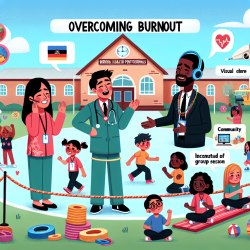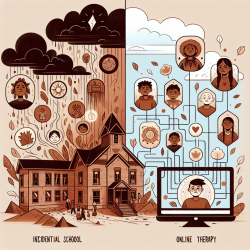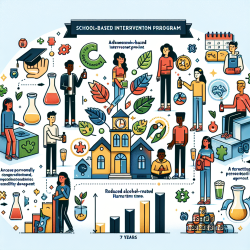Introduction to Legacy for ChildrenTM
In the realm of speech-language pathology and child development, data-driven decisions are pivotal in shaping effective interventions. The Legacy for ChildrenTM program, as detailed in a comprehensive study published in BMC Public Health, provides a robust model for improving developmental outcomes among children living in poverty. This blog aims to distill the findings of this research to empower practitioners with actionable insights and encourage further exploration into evidence-based interventions.
Understanding the Legacy Model
The Legacy for ChildrenTM program is a public health model designed to enhance child development outcomes by engaging parents, particularly mothers, as agents of change. Conducted through randomized controlled trials in Miami and Los Angeles, the study evaluated group-based parenting interventions among low-income families. The model's core philosophy is that nurturing and supportive parenting can significantly impact a child's development, even in the face of socioeconomic challenges.
Key Findings and Implications
The study revealed several critical insights:
- Parent Engagement: Mothers participating in the program showed increased engagement in parenting activities, fostering better developmental outcomes for their children.
- Improved Child Outcomes: Children of mothers in the intervention groups exhibited better cognitive, language, socio-emotional, and behavioral development compared to their peers in the control groups.
- Sense of Community: The group-based format helped mothers develop a sense of community, which was instrumental in reducing parenting stress and enhancing parenting practices.
- Cost-Effectiveness: The study also evaluated the cost of delivering the intervention, highlighting the potential long-term benefits that outweigh the initial costs.
Applying Legacy Insights in Practice
For practitioners in speech-language pathology and child development, the Legacy model offers a framework for implementing effective interventions. Here are some practical steps to consider:
- Emphasize Parent Involvement: Encourage parents to actively participate in their child's development through structured group sessions and individual support.
- Build Community Support: Facilitate group-based interventions that allow parents to share experiences and support each other, fostering a sense of community.
- Focus on Comprehensive Development: Address multiple domains of child development, including cognitive, language, and socio-emotional skills, to achieve holistic outcomes.
- Utilize Data for Continuous Improvement: Collect and analyze data on intervention outcomes to refine and enhance program effectiveness continually.
Encouraging Further Research
While the Legacy for ChildrenTM study provides valuable insights, it also underscores the need for ongoing research to refine intervention strategies and adapt them to diverse populations. Practitioners are encouraged to engage in further research to explore the nuances of implementing the Legacy model in various contexts and to contribute to the growing body of evidence supporting data-driven interventions.
To read the original research paper, please follow this link: Legacy for ChildrenTM: a pair of randomized controlled trials of a public health model to improve developmental outcomes among children in poverty.










